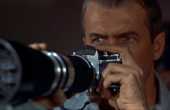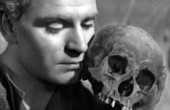Greg Beamish
Contributing writer for The Artifice.
Junior Contributor II
- Lurker
- ?
- Articles
2 - Featured
0 - Comments
25
- Ext. Comments
8 - Processed
0 - Revisions
0
- Topics
0 - Topics Taken
0 - Notes
0
- Topics Proc.
0 - Topics Rev.
0
- Points
205 - Rank
X - Score
111
Latest Articles
Latest Comments
| Hitchcock's Rear Window (1954): The Limited Perspective of the Voyeur | |
I’d agree that this movie’s high point isn’t really the narrative or the plot. What I think is great about it is the use of lenses (literally and figuratively). It seems to me like it’s a (and bare with me here) meta analysis of the limited perspective of a film. We see only what the camera shows us. We only see what Jefferies’ camera sees. | Hitchcock's Rear Window (1954): The Limited Perspective of the Voyeur |
Just watched Vertigo the other day and YES! I can see why it would be one of your favorites. Something I noticed about it was the very frequent use of extreme longshots. This style of shooting is extremely reminiscent of the way Scottie describes what induces his vertigo, like a pencil falling to the floor. A small object from far away and high up. Could the camera angle be a way of giving the audience a sense of Scotty’s vertigo? | Hitchcock's Rear Window (1954): The Limited Perspective of the Voyeur |
Thanks, I really appreciate that. My interest in Shakespeare is in the depth of analysis you can apply to it. There are so many layers to peel away from every piece that even after reading the whole collection a hundred times you might still make a new connection. | The Ghost of Shakespeare's Hamlet: "Purpose is but the Slave to Memory." |
Great analysis. I especially like the quote you drew out. I think Hamlet is another aspect of “the future” that Gertrude is trying to focus on. Looking at herself in the mirror briefly brings back a memory, but when she quickly returns focus to her sons impending madness, she is quickly brought back to the present and making plans for the future. She speculates about what will come while Hamlet speculates about what has already been. | The Ghost of Shakespeare's Hamlet: "Purpose is but the Slave to Memory." |
Nice article. Horror is an genre that can lead us down many dark paths. Some of my favorites are “The Blair Witch Project”, “Rosemary’s Baby”, “The Exorcist”, and “The Others”. History’s nazis were pretty much zombies anyway. It can be fun to see this irony manifested. There’s a sort of sonic quality to the phrase “Nazi Zombies”. It probably has something to do with the double Z. I agree that “Paranormal Activity” does a good job of creating clean suspense. It can make an audience scream at the swinging of a door or the ruffling of a sheet. The sense of reality it induces makes subtleties scary. | The New Classics in Horror Film Formulas |
Giovanni, Advertising is a funny thing to me. I have a love/ hate relationship with it. I hate the psychological manipulation that it employs but I love the process of breaking that manipulation down. I’ve been told I pay too much attention to commercials but I only do that because I like to be an active viewer. I’m never swayed by an advertising campaign but I can appreciate the creative and psychological process the writers of the campaign use. The author Don Delillo discusses this concept in his novel “White Noise”. He calls it “psychic energy”. Basically it’s the notion that almost everything in our modern age is a means of swaying a customer to believe something about a product. It seems like a dangerous combination when professional film makers are in control of a stylized advertisement, which is basically a short film in itself. | Film Marketing: A Lesson in Deception |
Hey Ryan, nice job with the article. I really like your analysis of the active vs. passive viewer. Kind of reminds me of my mom and myself. Don’t get me wrong, I love my mom, but when we watch a movie together she wants everything served to her on a plate while I thrive on the fine details of the film. Every good movie can’t waste film. I love a movie where every single shot contributes something to interpretation. I like the way you break down active analysis into the different forms: expressions, dialogue, symbols. I think more could be added to this list. Camera angles or light filters for example. I recently watched the movie “Nebraska” (excellent). I think many people may have been turned off by the black and white film but I believe it takes an active viewer to try and determine a reason for it. Personally I think it’s a representation of old age. Something the film captures beautifully and humorously. | Broken Flowers (2005) and Ambiguity: The Need for Active Viewers |


Yes! Exactly.